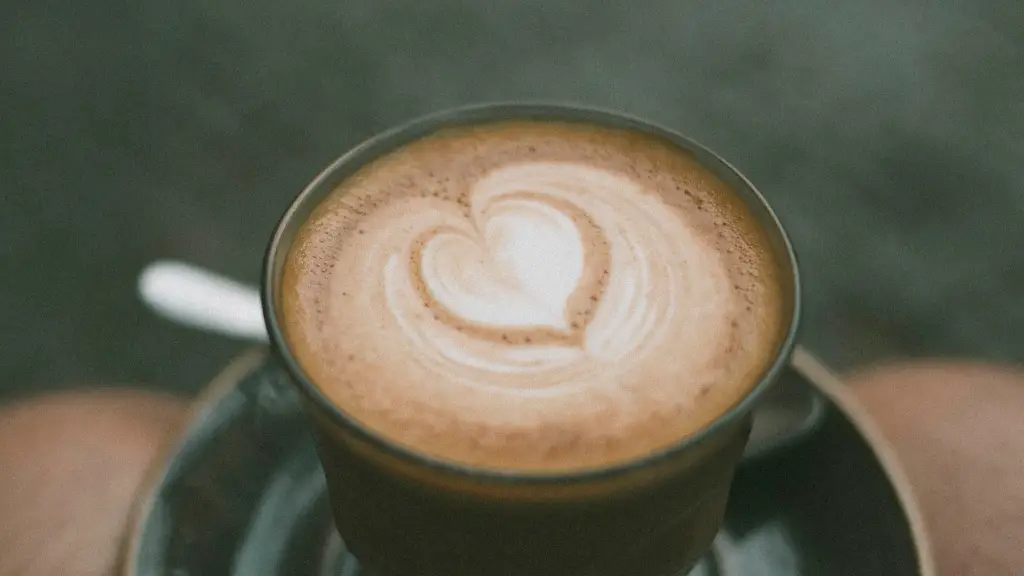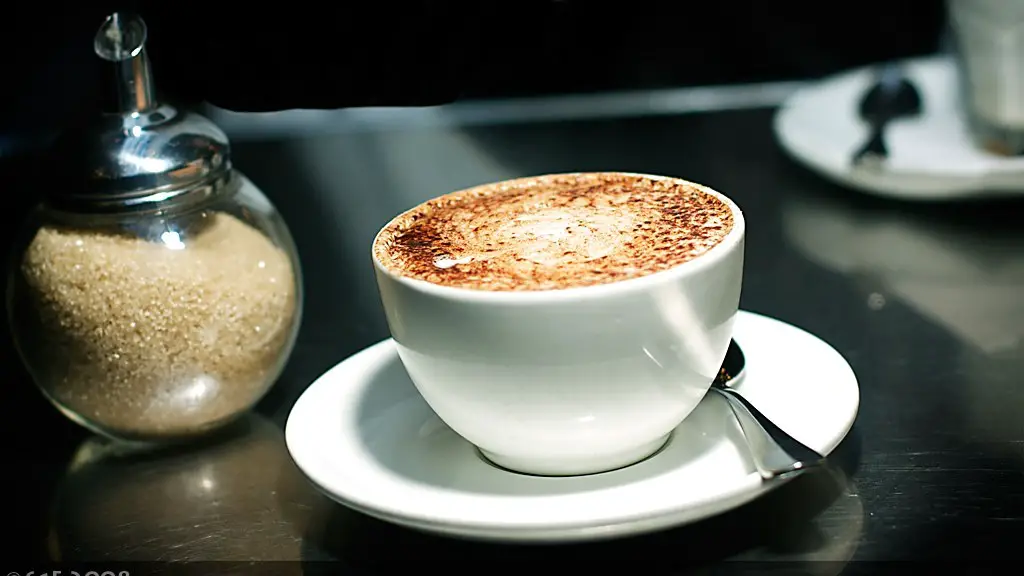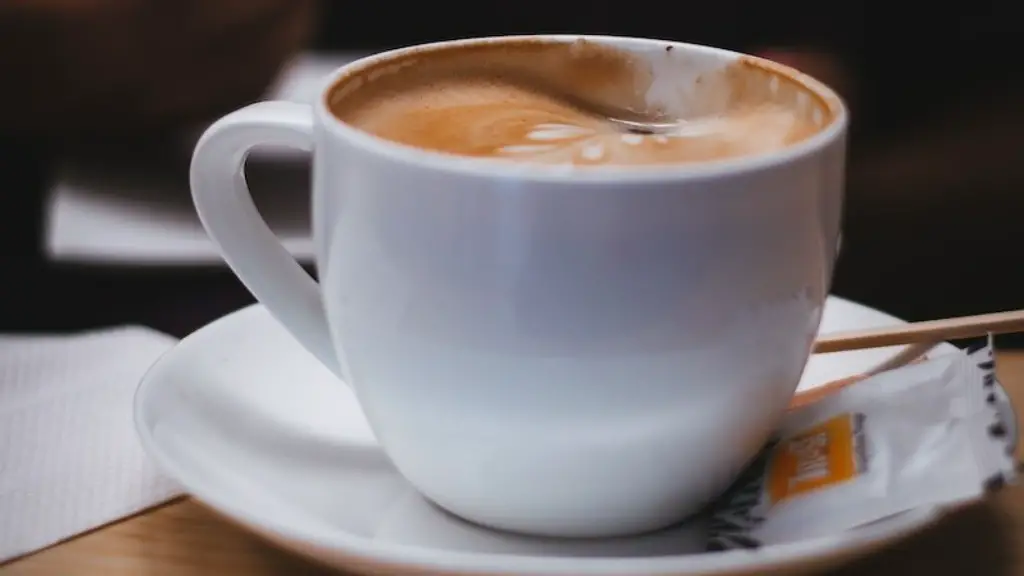Many people believe that drinking coffee can give them the energy they need to make it through the day. But, is it possible that not drinking coffee can make you feel tired and sluggish? This article takes a look at the effects of not drinking coffee, as well as some potential alternatives.
It is true that caffeine, the main active ingredient in coffee, is one of the most commonly used and highly studied drugs in the world. Caffeine stimulates the nervous system, causing increased alertness and decreases fatigue. Research suggests that consuming 200 to 300 milligrams of caffeine a day—about 2 or 3 cups of coffee—can improve performance on vigilance tasks and reaction times, as well as reduce tiredness and fatigue.
But, what if you don’t drink coffee? Does this mean you’re more likely to be tired and sluggish throughout the day? The answer is: it depends. Not necessarily. While caffeine can be helpful in reducing tiredness and improving performance, there are other factors at play.
First and foremost, it’s important to get enough sleep. The amount of sleep you get each night greatly affects how alert and awake you feel during the day. If you’re not getting enough sleep, it’s not coffee that will help you—it will only provide a temporary boost.
Eating healthy, nutritious foods can also help keep you energized throughout the day. Eating a balanced diet ensures that your body is getting the necessary vitamins and minerals it needs to stay energized. Avoiding sugary, processed foods and artificial sweeteners can help you stay alert and focused.
Exercise can also play an important role in keeping you energized. Regular physical activity can help increase your alertness and focus, as well as improve overall well-being. Even a short, 15-minute walk or light workout can be enough to give you the boost you need.
Lastly, hydration is key when it comes to keeping energy levels up. When your body is properly hydrated, your cells can function at their peak level, which can give you a natural boost of energy.
Alternatives to Caffeine
If you’re looking for an alternative to caffeinated beverages, there are plenty of options. Herbal teas, such as chamomile and rooibos, are caffeine-free, and can also help to reduce stress and promote relaxation. Green tea also contains caffeine, but in much lower amounts than coffee.
Many energy drinks are caffeine-free and contain B vitamins, which can help promote alertness. Coconut water and watermelons are also natural sources of electrolytes and hydration.
Yerba mate is an herbal tea made from the leaves of the Ilex paraguariensis plant, which is native to South America. While it does contain caffeine, it is often viewed as a more sustainable option as it contains less than traditional coffee. Yerba mate can be consumed hot or cold, and is also believed to promote alertness and mental clarity.
Natural Energy Boosters
If you need a quick pick-me-up, there are several natural energy boosters you can incorporate into your daily routine. Taking a brisk walk or doing a few jumping jacks can be enough to help increase alertness and energize the body. Eating foods high in iron, such as spinach or lentils, or foods containing omega-3 fatty acids, such as salmon or walnuts, can also give you a natural boost of energy.
Taking time for yourself to relax and de-stress can also help to energize you. Meditation, reading a book, or simply taking a few deep breaths can help to reduce stress levels, which can boost energy levels.
Tools to Help you Stay Alert
There are also tools and apps that can help you stay alert throughout the day. Many of these apps are designed to monitor and regulate caffeine intake, allowing users to track how much caffeine they’ve consumed. Other apps aim to promote healthier snacking and hydration habits, helping users to stay energized throughout the day.
One popular app is Caffeine Tracker, which helps users track and regulate their caffeine intake and provides insights on how to best optimize caffeine consumption for optimal performance. The app also provides users with virtual coaching, helping them to create personalized caffeine plans.
Another popular tool is the Daily Water Tracker app, which helps users set daily hydration goals and track their progress. The app also has reminders to help users stay on track and maximize their hydration levels.
The Bottom Line
While consuming caffeine can help reduce fatigue and improve alertness, it is important to remember that there are other factors that can impact your energy levels, such as sleep, diet, exercise, and hydration. There are also natural alternatives to caffeine, as well as tools and apps to help you stay alert and energized throughout the day.
Caffeine Alternatives for Specific Times
If you need an energy boost in the morning, try a glass of freshly squeezed orange or grapefruit juice, which provides an all-natural boost of energy. You can also reach for a piece of dark chocolate for an indulgent pick-me-up.
If you’re feeling tired in the afternoon, try opting for a herbal tea, like chamomile or rooibos. Even a quick 10-minute walk can help to energize the body and mind.
And if you’re feeling sluggish towards the end of the day, try incorporating some yoga or stretching into your routine. This can help to reduce stress and improve circulation, which can help give you an natural energy boost.
Adapting Your Habits
In general, drinking coffee is not necessarily necessary to increase energy levels. Making small changes to your diet and lifestyle, such as adding more vegetables, getting more sleep, and going for a walk each day can help to increase energy and alertness naturally. And if caffeine is necessary for you to make it through the day, try to limit your intake and be mindful of when and how you’re consuming it.
At the end of the day, it is important to listen to your body and be aware of what works best for you. With the right diet, habits, and lifestyle changes, you can increase your overall energy levels without the need for coffee.





